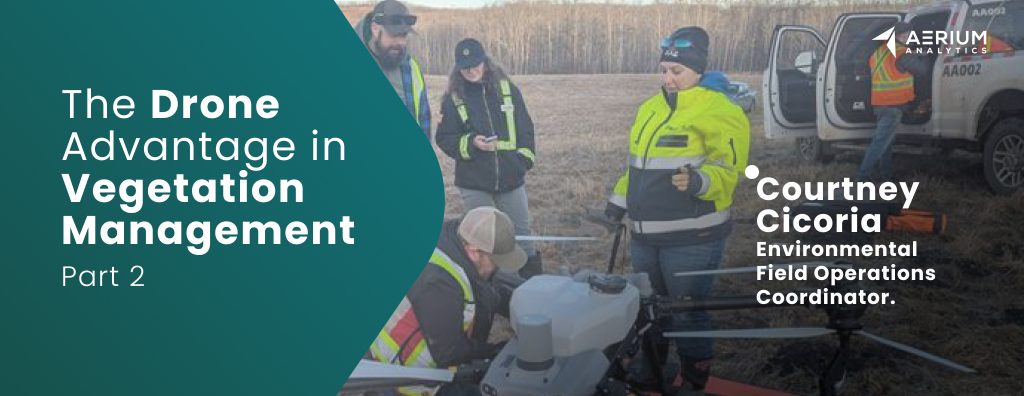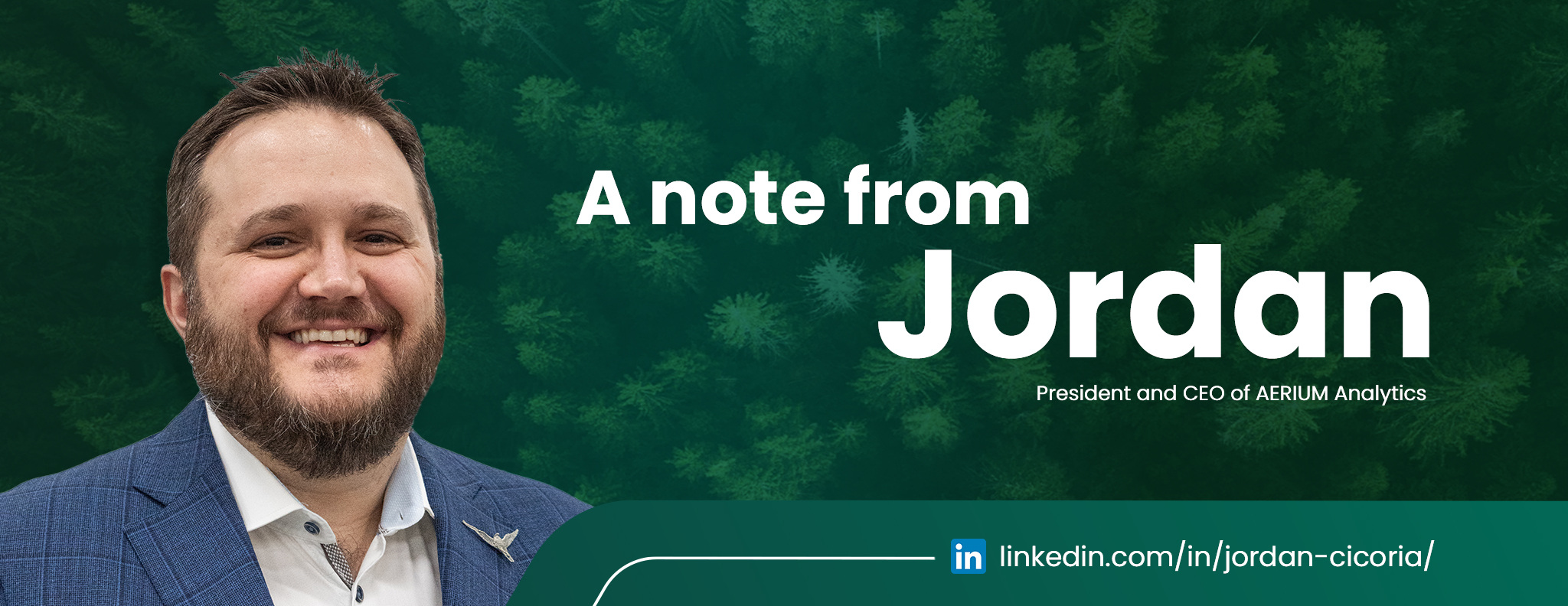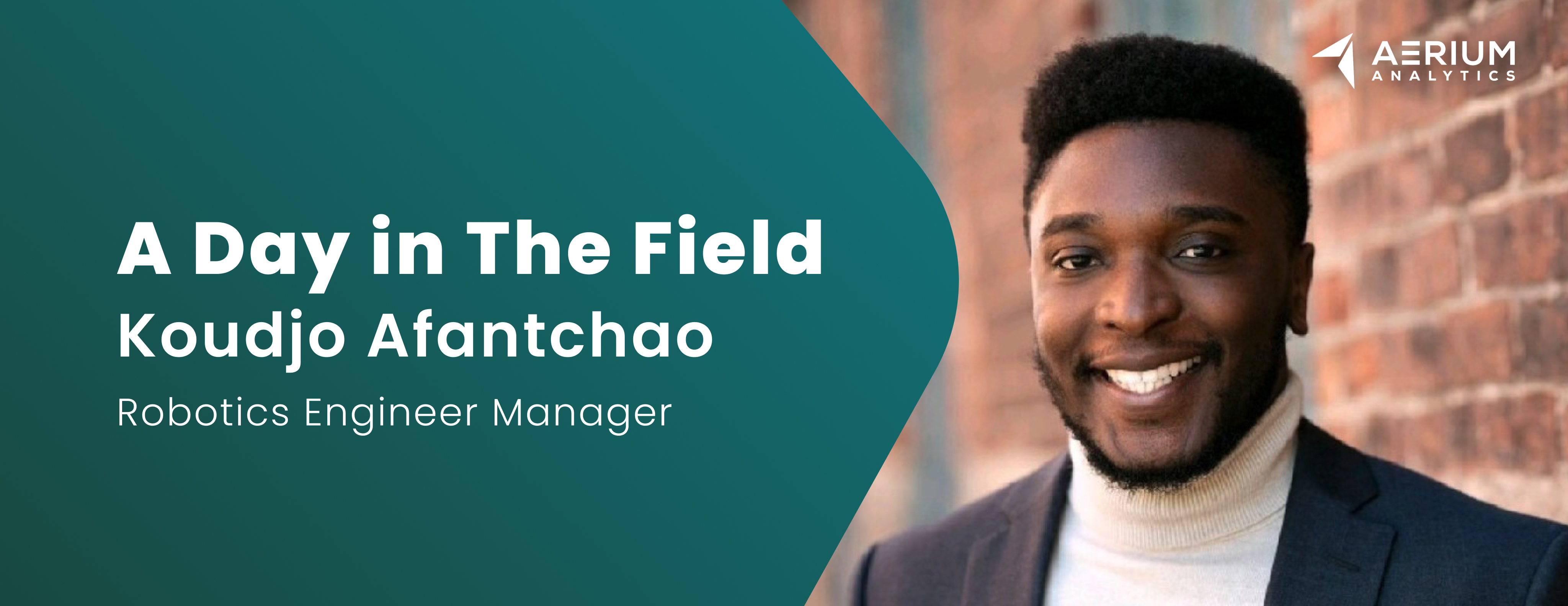
The Drone Advantage in Vegetation Management – Part 2
In the first chapter of this series, we explored the importance of vegetation management and some of the key challenges companies often face. We also introduced the growing role of drone-based solutions and the positive impact they’re making across the industry.
If you missed the first chapter of this story, check it out here!
In March 2025, Courtney Cicoria, our Environmental Field Operations Coordinator, achieved a major milestone by becoming the first person in Alberta to earn the RPAS Herbicide Applicator Certificate.
AERIUM Analytics Inc. also became the first company in the province to receive RPAS Service Registration, granting legal authorization to apply pesticides by drone.
This was a clear sign that vegetation management is ready for regulated, real-world application in industrial environments.
“Drone spraying in the industrial sector in Alberta has essentially been non-existent,” Courtney explains. “Now, with this certification, we can bring regulated, safe, and strategic spraying into industrial sectors like energy, rights-of-way, mines, and utilities. Other industries, like forestry and landscaping, will also benefit.” – Courtney Cicoria, Environmental Field Operations Coordinator at AERIUM Analytics.

Picture 1: Courtney’s crew at the field during training session.
The Crossover Advantage: Drone-based vegetation management
Courtney’s journey didn’t start with drones. She began in environmental science and GIS, navigating the challenges of ground spraying firsthand.
“I learned on the job and figured it out as I went, being taught as an uncertified assistant,” she says. “That gave me a real appreciation for how vegetation behaves, and how important it is to manage it the right way. The following season, I became a certified applicator and started running my own programs. I’m three years in now, and while I feel I have a considerable amount of knowledge under my belt, I’m always continuing to learn and grow.”
That field experience now powers her drone work. Because after all, it’s not just about flying, it’s about understanding what needs to be treated, where, why, and doing it with care.
“What this does is allow us to get into places we can’t reach by foot or UTV. Tailings ponds, for example, are attracting birds due to surrounding vegetation. If we can control the attractant safely using drones and herbicide, we’re not just managing plants, we’re protecting wildlife and reducing mortality rates.”

Picture 2: Courtney’s crew about to deploy drone during training session.
What’s Next?
Courtney sees drone-based vegetation management increasing rapidly in scope within a single season across industries like energy, mining, and forestry, and that’s just the beginning.
“Honestly, I’m still learning every day. But I’m proud, not just of the certification, but of what it represents. It’s a small step for me, but a big leap for where this industry can go. It’s not about being the first woman, it’s about being the first person. The more we normalize drone-based vegetation management, the safer, smarter, and more sustainable our industries will become.”
Our President and CEO, Jordan Cicoria, also emphasized how important this new accomplishment is, not just for us, but for the entire drone industry.
“Courtney’s achievement marks an important step not just for our team, but for the entire drone and vegetation management industry. This certification demonstrates how drone-based solutions can make industrial operations safer, more sustainable, and more efficient. It’s a testament to the innovation and commitment we continue to bring to every project.” — Jordan Cicoria, President and CEO at AERIUM Analytics.
Courtney’s certification is more than a milestone for AERIUM Analytics, it’s a signal of what’s possible when innovation, safety, and sustainability align.
As drone-based vegetation management continues to gain traction across energy, mining, and forestry, it’s clear that this technology is reshaping how industries approach high-risk, labor-intensive work. With leaders like Courtney paving the way, the future of industrial operations is not only smarter, it’s safer, more inclusive, and undeniably forward-looking.

